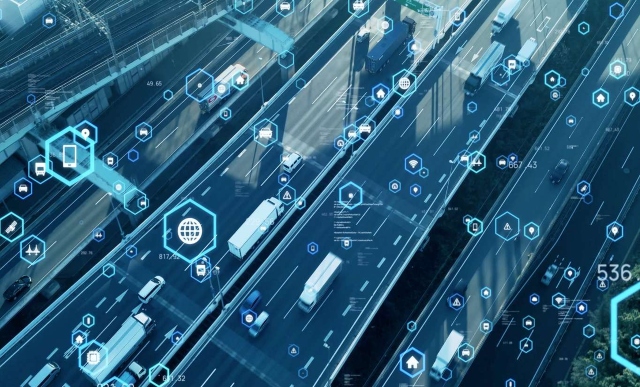ERM Addresses Groundswell of Corporate Sustainability Regulations, Leaning on SAP Partnership
Meet the Authors
Key Takeaways
⇨ Environmental stewardship in the supply chain is increasingly prioritised by companies, with a strong emphasis on compliance management, digital services, and sustainability reporting through partnerships with IT vendors like SAP.
⇨ ERM's digital solutions, such as emissions.AI, enable operational teams to gain insights into energy usage and emissions, supporting decarbonisation initiatives and regulatory compliance within supply chain operations.
⇨ Companies are facing growing mandates for ESG reporting, necessitating robust frameworks and systems to track and report environmental impacts, while solutions like ERM’s Mine Assure and SAP's Environmental Management Systems enhance visibility and compliance.
Environmental stewardship in the supply chain has become a top corporate priority in recent years. One of the SAP partners at the recent Mastering SAP Connect event in Gold Coast, Australia, ERM, focuses on environmental health and safety, sustainability, and ESG solutions. With 8,000 employees globally, the company emphasises compliance management, digital services, and partnerships with IT vendors like SAP. Key outcomes targeted by the company’s digital products and consulting services include worker safety, product compliance, and sustainability reporting. With decarbonisation initiatives and regulatory mandates becoming more common, ERM is planning for growth and focusing on training, innovation, and working with clients on sustainability agendas. The company has been operating for 55 years and has clients across various sectors, including mining, oil and gas, retail, and telecom, with headquarters in London, Houston, and Australia.
“We address supply chain and asset management challenges, driven by decarbonisation initiatives and regulatory mandates,” said 18-year SAP industry veteran Sam Borkar, Principal Consultant at ERM. “Future growth is anticipated, with a focus on training, innovation, and working with clients on sustainability agendas. It’s important to integrate social aspects into sustainability reporting and technology will play a vital role in meeting regulatory compliance.”
ERM’s offerings include compliance management for health, safety, and environmental standards, as well as ESG reporting. The company helps clients understand their regulatory areas and ensure they have the necessary technology and processes to meet reporting standards.
Explore related questions
Sam Borkar emphasised the importance of having a framework to capture and represent data in the required format. ERM’s partnership with SAP covers three areas:
- Worker safety, incident management, environment management, risk management,
- Product compliance, focusing on harmonising data and automating processes using SAP applications.
- Corporate sustainability reporting and ESG strategy, regulatory compliance.
One of ERM’s digital products is called emissions.AI. It is a digital solution that gives operations teams insights into the drivers of excess energy usage and emissions hidden in plant and process configurations, operating procedures, plant start-ups and shut-downs and other operational data. The solution is typically deployed in complex industrial facilities in months and leverages a digital twin built directly from existing plant data. Operations teams gain access to at-a-glance insights from facility down to equipment level. AI then suggests new ways to reduce emissions, all while keeping production secure.
In supply chain operations, key sustainability topics include supplier authenticity, resource assessment, material sourcing, and transportation.
“In supply chain, decarbonisation initiatives and reputational standards are driving the focus on sustainability,” said Charissa Tomlin, Partner at ERM. “We focus on working with clients driving a sustainability agenda, particularly in renewables and decarbonisation initiatives.”
Standards and mandates like the Australian Sustainability Reporting Standards (ASRS) and the need for companies to track and report data in specific formats are becoming more commonplace.
“Building competencies, skills and training are crucial for sustaining our company in the increasingly competitive market,” added Borkar. “It’s important for us to continue to work with vendors like SAP and participate in early training and testing programs.”
What this means for Mastering SAP insiders
Get a handle on your ESG reporting with ESR’s product ESG Fusion. Environmental, Social, and Governance (ESG) reporting obligations are becoming increasingly significant, particularly for supply chain operations. Companies are required or encouraged to disclose ESG-related information based on regulations, frameworks, and stakeholder expectations. For example, the EU Corporate Sustainability Reporting Directive (CSRD) mandates comprehensive reporting on emissions, resource use, and environmental impact. And the SEC Climate Disclosure Rule in the U.S. proposes mandatory disclosure of Scope 3 emissions for publicly traded companies. ESG Fusion is an ESG assessment engine, providing comprehensive, on-demand ESG insights for any company. Building on a unique set of proprietary and 3rd party data sources, Fusion supports investment and corporate professionals with a full picture of a company’s industry risk, past controversies and current ESG management practices.
Stay on top of industry-specific sustainability directives and regulations. Some industries have unique environmental impact reporting requirements. For instance organisations in the mining and metals sector across the globe are challenged with an extensively growing landscape of ESG standards and certifications. These can be industry specific standards like ICMM, global initiatives or requirements that come from supply chain partners. Trying to respond to the various standard requirements often leads to growing overhead cost, fragmented data and low data consistency. In response to this, ERM has developed Mine Assure, a SaaS solution for responsible conformance management, specifically for the mining and metals industry. Mine Assure serves as a central data hub for all standards reporting initiatives. Companies can establish and share corporate guidance in context for their organisation, and share their data with third parties and certification boards.
Fully leverage environmental impact visibility and reporting capabilities within SAP. Supply chain leaders should implement Environmental Management Systems (EMS) utilising SAP’s environmental management software. They can establish and maintain an EMS that aligns with standards like ISO 14001. This system helps in monitoring environmental performance, ensuring compliance, and facilitating continuous improvement. SAP’s Digital Supply Chain portfolio contains functionality that provides visibility into material sourcing and product flows. This transparency ensures compliance with environmental regulations and supports responsible sourcing and production practices. SAP’s analytics capabilities can monitor and report on environmental compliance metrics, helping organisations track their sustainability performance and identify areas for improvement. Supply chain executives should engage with suppliers, partners, and customers through SAP’s Business Network to share best practices and innovations related to environmental management. This collaboration fosters a unified approach to sustainability across the entire value chain.








